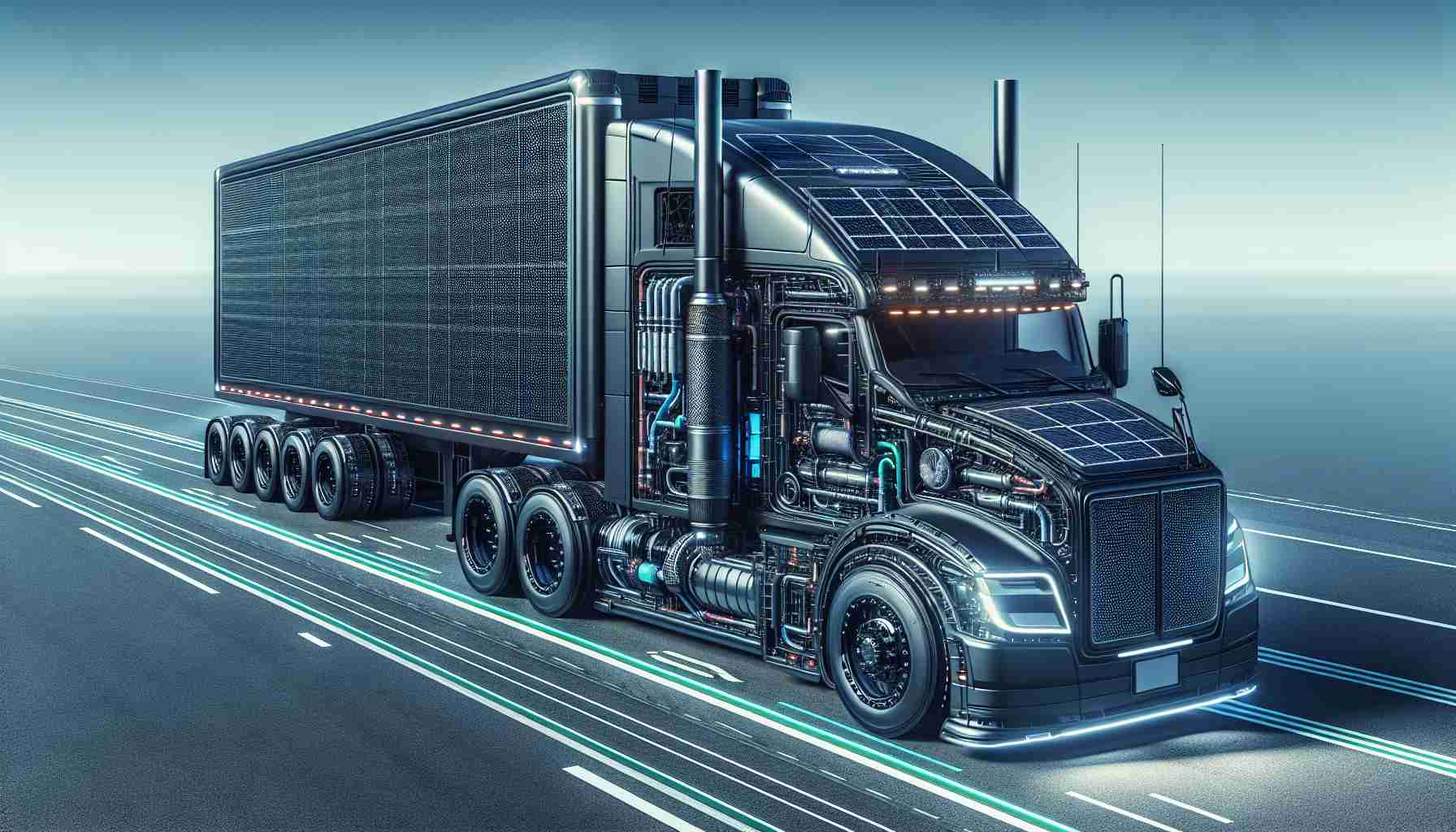The Rise of Hydrogen-Powered Semi-Trucks: Nikola’s Innovation
Nikola Corporation, renowned for its eco-conscious engineering, has made waves in the transportation sector with its plans for a hydrogen-electric semi-truck, the Nikola One. This ambitious project showcases the company’s commitment to creating sustainable alternatives to conventional diesel trucks.
First tested on the roads in 2016, the Nikola One’s hydrogen-electric hybrid design features a significant gross weight capacity of 80,000 pounds and an impressive range of 1,200 miles—enabling longer hauls without frequent refueling stops. The truck’s Class 8 specifications include a powerful hybrid powertrain, boasting 2,000 horsepower and remarkable torque for steep climbs.
Nikola is actively developing a network of hydrogen refueling stations spanning across the U.S. and Canada, aiming to support a future dominated by zero-emission trucking. Despite initial optimism, the Nikola One has faced production challenges, with full manufacturing not commencing as planned. It has now given way to the Nikola Two model, which is currently in production and gaining traction on the roads.
Hydrogen trucks present several advantages: they produce only water vapor as a byproduct, refueling takes only minutes, and they typically offer a longer range than battery-electric counterparts, making them ideal for long-haul transportation. As the industry evolves, Nikola remains at the forefront of the sustainable transport revolution, eagerly exploring innovations beyond hydrogen, including alternative fuels like liquid nitrogen.
The Future of Green Hauling: Nikola’s Hydrogen-Powered Semi-Trucks
The Rise of Hydrogen-Powered Semi-Trucks
Nikola Corporation is making significant strides in the transportation industry with its innovative hydrogen-electric semi-trucks, particularly the Nikola One and its successor, the Nikola Two. These vehicles represent a pivotal shift toward sustainable trucking solutions, addressing the growing need for eco-friendly alternatives to traditional diesel-powered trucks.
Cutting-Edge Hydrogen Technology
Specifications and Performance
The Nikola One is equipped with a hydrogen-electric hybrid powertrain, providing a remarkable 2,000 horsepower and substantial torque, which is essential for navigating challenging terrains. With a gross weight capacity of 80,000 pounds and a range of approximately 1,200 miles, these trucks enable long-haul trucking with minimal downtime for refueling. The Nikola Two continues this legacy, enhancing the original design with improved efficiency and performance.
Advantages of Hydrogen-Electric Trucks
Pros:
– Rapid Refueling: One of the standout benefits of hydrogen-powered trucks is their quick refueling time, taking merely minutes to fill up, as opposed to the hours required for electric battery systems.
– Longer Range: Hydrogen trucks generally excel in range compared to traditional battery-electric models, making them particularly suited for extensive cross-country journeys.
– Zero Emissions: An eco-friendly alternative, hydrogen trucks only emit water vapor, contributing to cleaner air and reduced carbon footprints.
Cons:
– Infrastructure Challenges: One of the significant hurdles facing hydrogen trucks is the limited network of refueling stations, though Nikola is actively working to establish more stations across North America.
– Cost of Hydrogen Production: Currently, the cost of producing hydrogen and building the necessary infrastructure can be high, limiting widespread adoption.
Market Analysis and Trends
The hydrogen trucking market is experiencing an upswing due to increasing concerns over climate change and stricter emissions regulations. Major companies are investing in hydrogen technology, indicating a trend towards larger-scale production and adoption. Analysts predict that with growing investments in hydrogen infrastructure and advancements in technology, hydrogen-powered trucks could become a mainstream solution within the next decade.
Innovations and Future Directions
While Nikola is committed to hydrogen technology, it is also exploring alternative-fuel vehicles, including options powered by liquid nitrogen. This forward-thinking approach places Nikola at the forefront of the green transportation revolution, positioning them well ahead of competitors in the sustainable transport market.
Conclusion
Nikola’s hydrogen-powered semi-trucks exemplify the future of sustainable transportation. With their impressive specifications, rapid refueling capabilities, and eco-friendly operation, they are set to transform long-haul trucking. As infrastructure develops and production challenges are addressed, Nikola Corporation aims to lead the charge towards a greener future in logistics and transportation.
For more information about Nikola’s innovative approaches and sustainable technologies, visit the Nikola Corporation website.


